Preparing for surgery can be a daunting experience, but it doesn't have to be. In this article, we'll walk you through essential steps to ensure you're ready for your procedure, from understanding pre-surgical instructions to managing any anxiety you may feel. We'll also discuss how to communicate effectively with your healthcare team, ensuring you feel supported and informed every step of the way. So, let's dive in and set you up for a successful surgery journey!
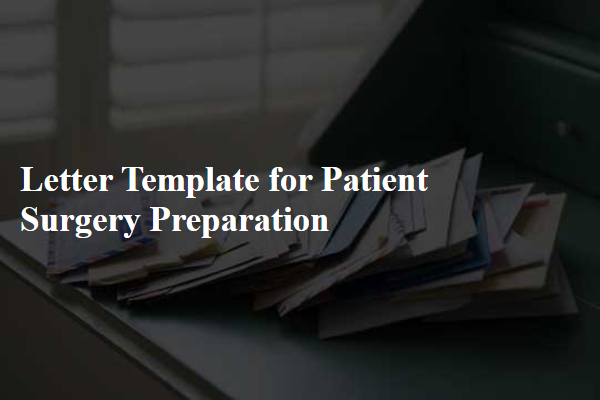
Patient Information Verification
During the patient surgery preparation process, accurate patient information verification remains crucial for ensuring safety and proper care. This verification entails confirming essential details such as identification (full name, date of birth, and medical record number) to prevent errors associated with mistaken identity. Furthermore, it is important to review surgical site information (specific body part where the procedure will take place) along with relevant medical history (underlying conditions, allergies, and previous surgeries) that may impact surgery outcomes. Additionally, communication of anesthesia preferences and any required preoperative instructions must be clarified to adhere to the facility's protocols. Keeping this information accurately documented minimizes the risk of surgical complications and ensures a smooth procedure at locations such as hospitals or outpatient surgery centers.
Surgery Date and Time Details
Surgery preparation instructions ensure a smooth process for patients at healthcare facilities. Various surgical types, including orthopedic (e.g., knee replacement), cardiovascular (e.g., bypass surgery), and general surgeries (e.g., appendectomy), require precise pre-operative preparations. Patients should be informed of their specific surgery date and time, which are crucial for scheduling and effective team coordination. Additionally, essential guidelines often include fasting requirements (e.g., no food or drink for eight hours prior), medication adjustments (consultation with healthcare providers), and necessary laboratory tests (e.g., blood tests, imaging studies). A detailed pre-operative checklist can significantly enhance patient readiness, reducing anxiety and improving surgical outcomes.
Pre-Surgery Instructions
Pre-surgery instructions are critical for ensuring a smooth surgical experience at medical facilities like Community Medical Center. Patients should follow detailed guidelines to prepare adequately. Fasting is usually required for at least 8 hours prior to anesthesia, which may include not consuming food or liquids, significantly water. Medications, particularly blood thinners such as Aspirin or Warfarin, should be discussed with healthcare providers prior to the procedure date, avoiding any potential complications. Personal hygiene is also emphasized; patients are often advised to shower using antibacterial soap to minimize infection risk. Transportation arrangements should be made, as patients cannot drive post-surgery due to anesthesia effects. Important considerations include wearing loose-fitting clothing on the day of surgery, bringing personal identification, and having a designated caregiver present to assist with recovery. Understanding these protocols can significantly enhance patient safety and comfort throughout the surgical process.
Contact Information for Queries
During surgical preparation, clear communication is crucial for ensuring patient readiness and addressing any concerns. Patients are encouraged to reach out to the surgical coordinator at the hospital, typically located at 123 Health Lane, Cityville, to discuss any questions related to the procedure scheduled for October 15, 2023. The coordinator can be contacted via phone at (555) 123-4567 or through email at surgeryinfo@hospital.com. Providing information on pre-operative guidelines, medication management, and dietary restrictions plays a vital role in minimizing anxiety and optimizing outcomes for the surgical experience.
Emotional Support and Resources
Preparing for surgery can induce a range of emotions in patients, including anxiety and fear. Hospitals, such as Johns Hopkins Hospital in Baltimore, Maryland, provide emotional support resources, including pre-surgery counseling sessions. These sessions may incorporate techniques from Cognitive Behavioral Therapy (CBT) to help patients manage their anxiety. Additionally, support groups featuring individuals who have undergone similar procedures can offer invaluable perspective and camaraderie, making the surgical journey feel less isolating. Resources such as relaxation techniques, guided imagery, and mindfulness practices can also play a significant role in a patient's emotional preparedness. Educational materials regarding the surgery, recovery process, and potential outcomes are crucial in fostering understanding, alleviating fears, and enhancing patients' confidence in their healthcare teams.

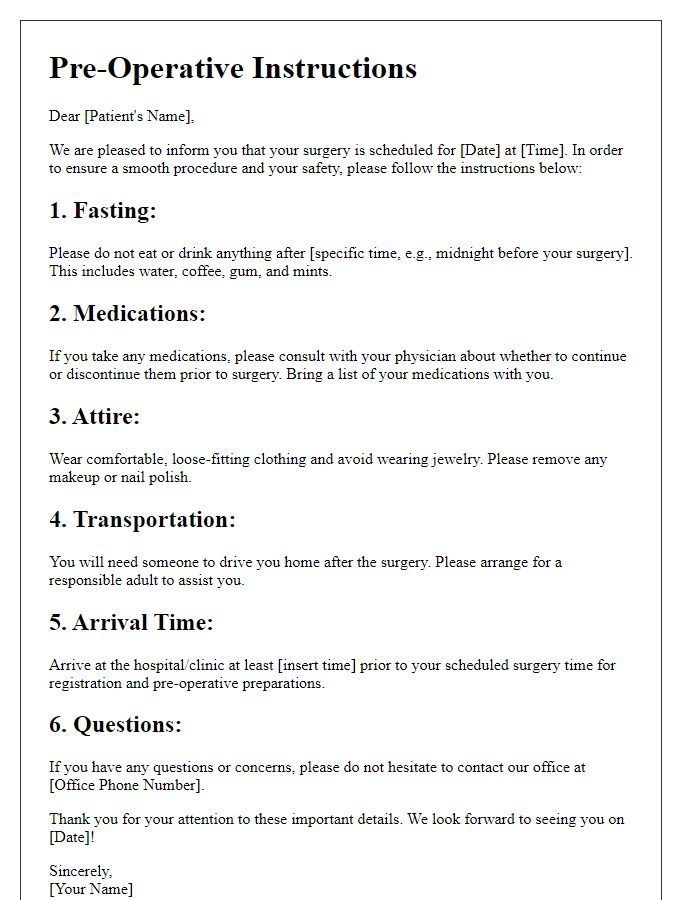
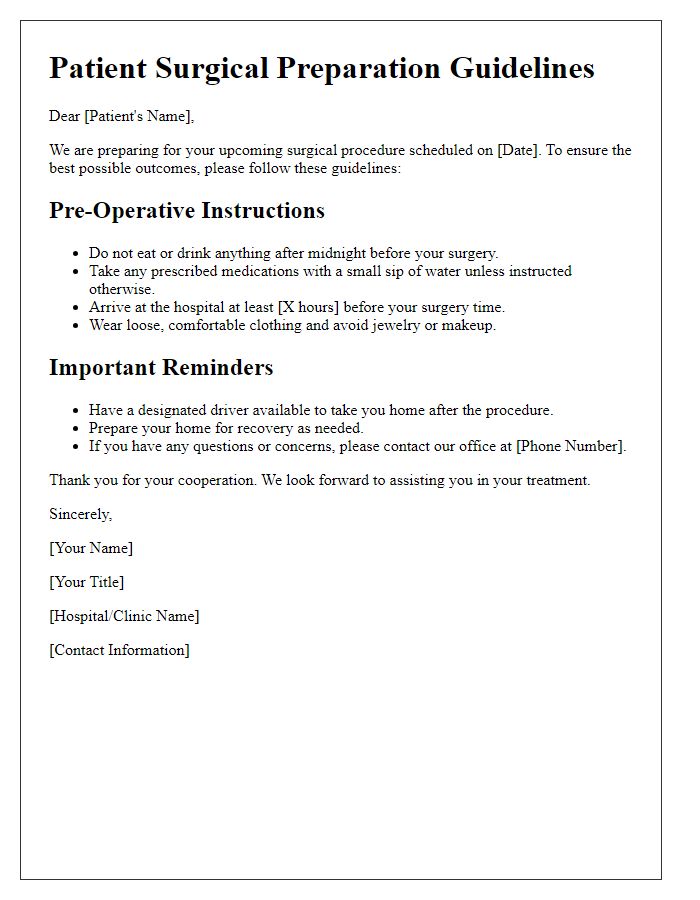
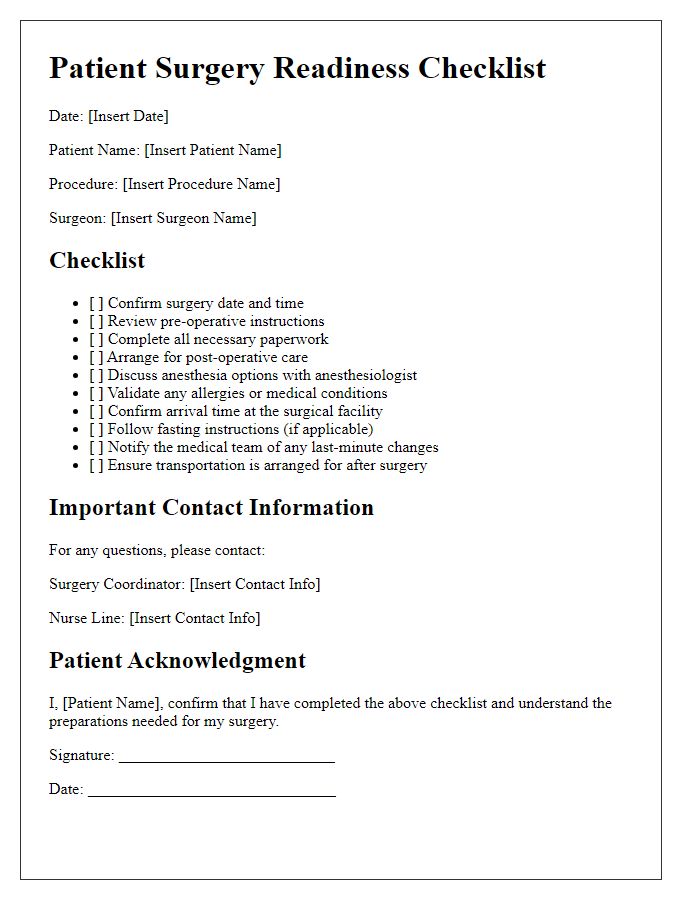
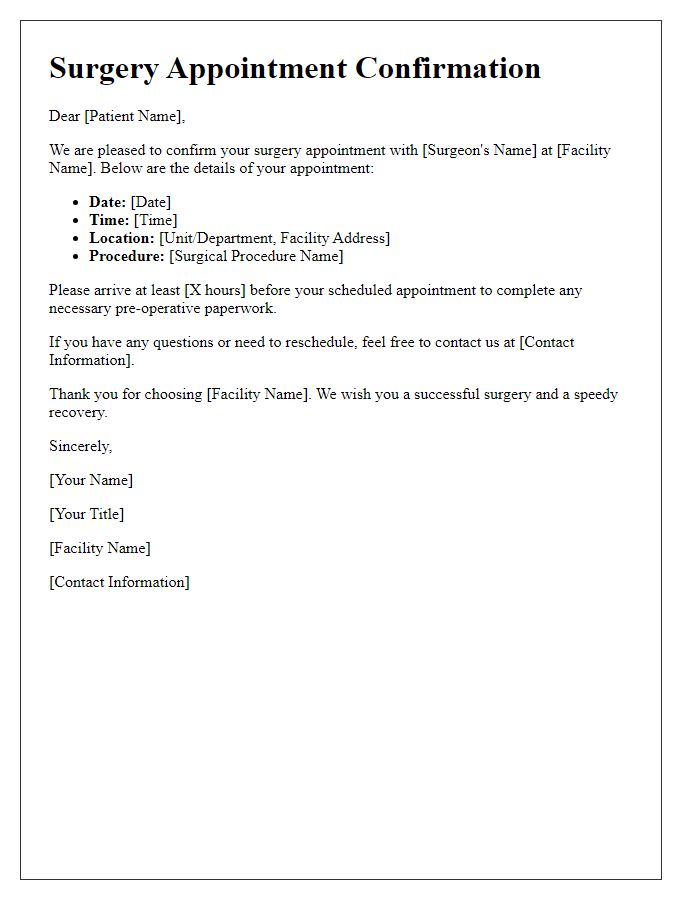
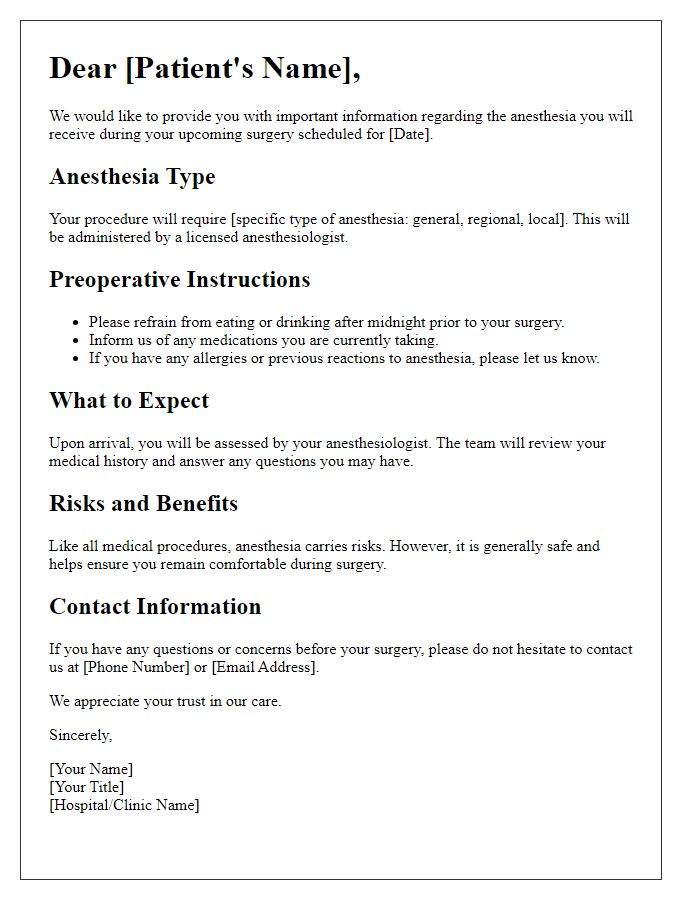
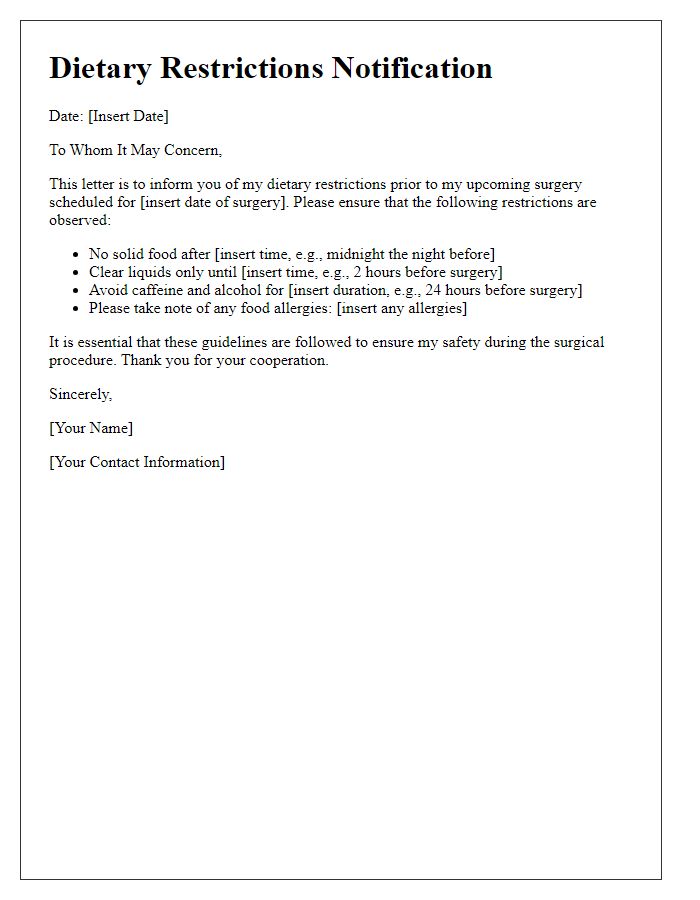
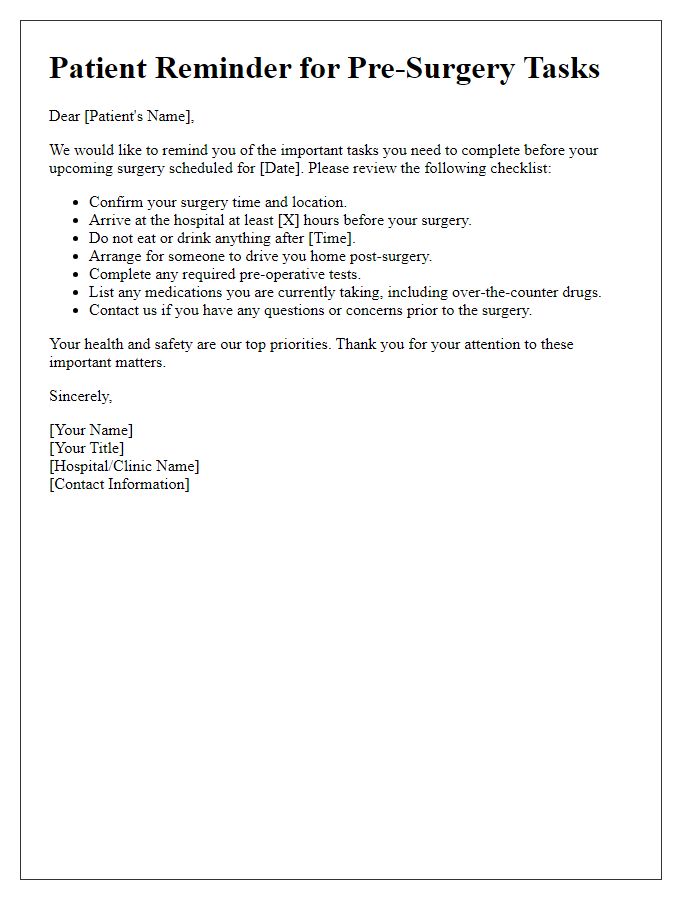
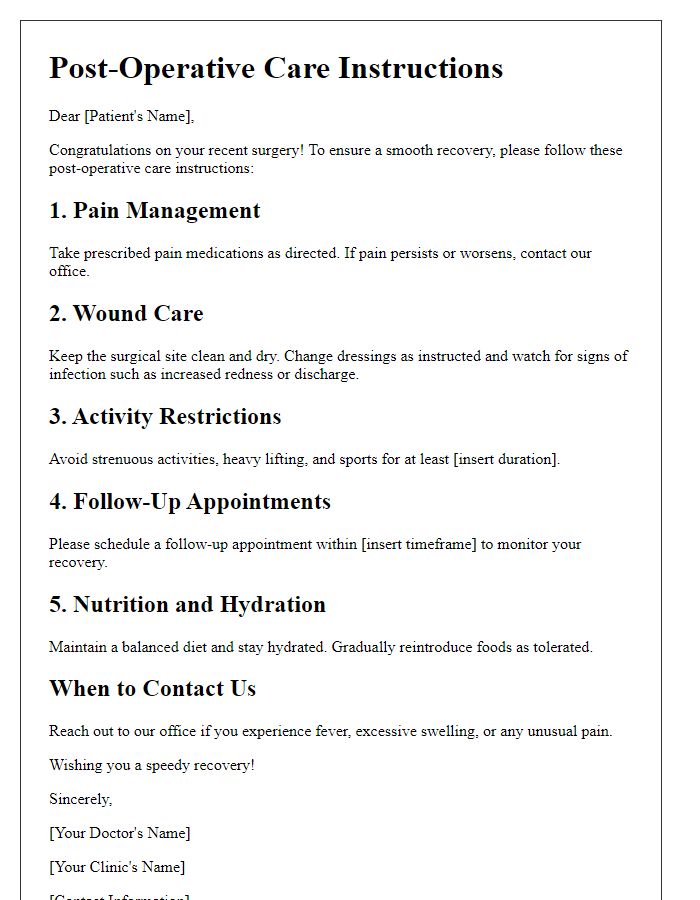
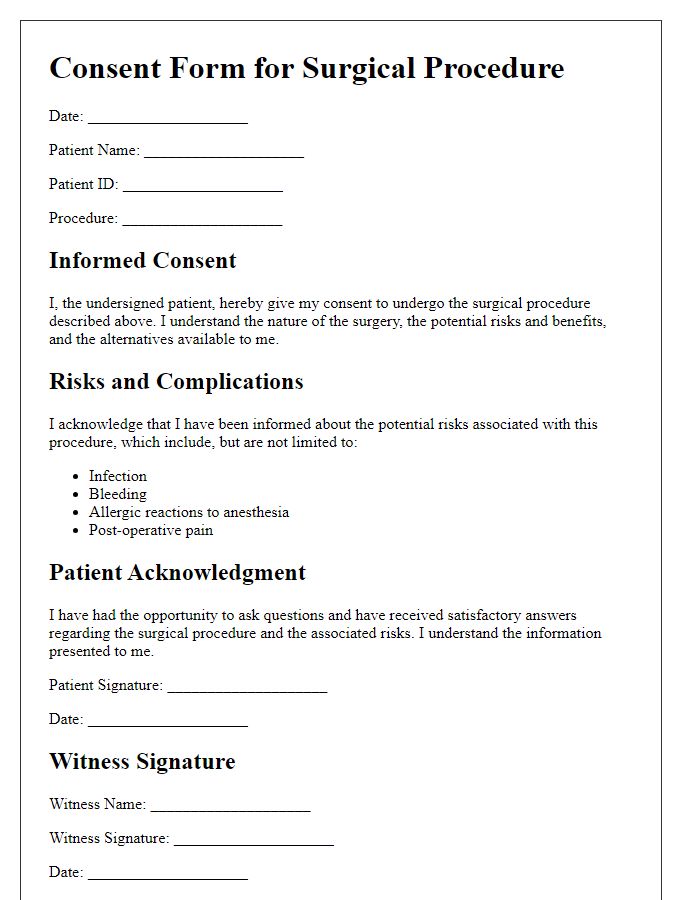
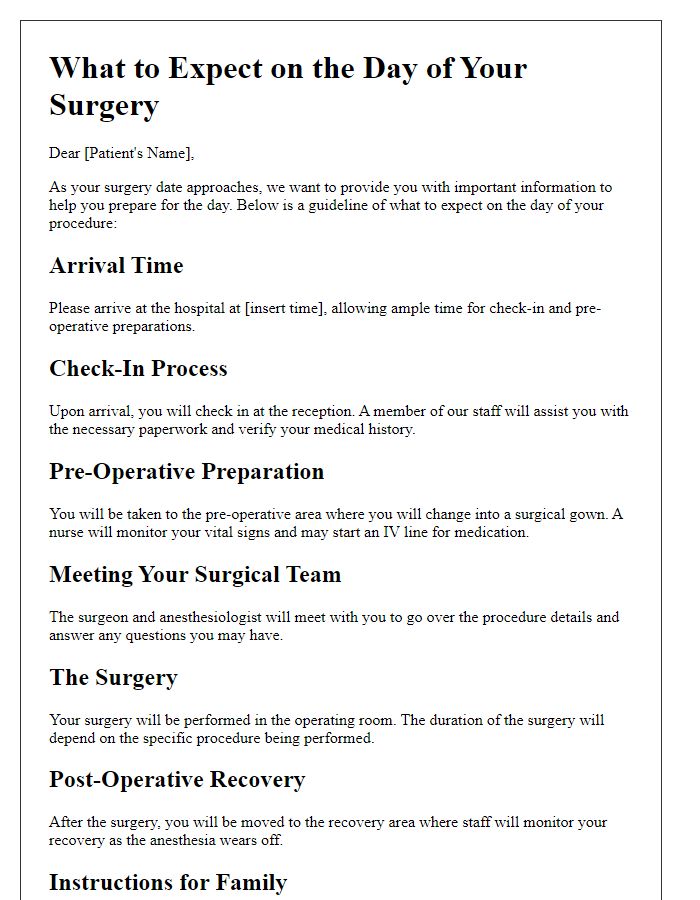

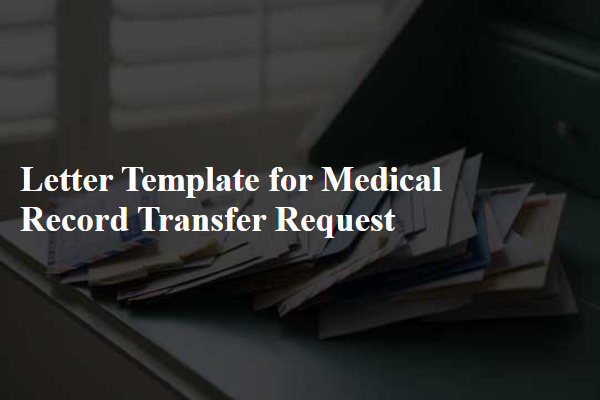
Comments